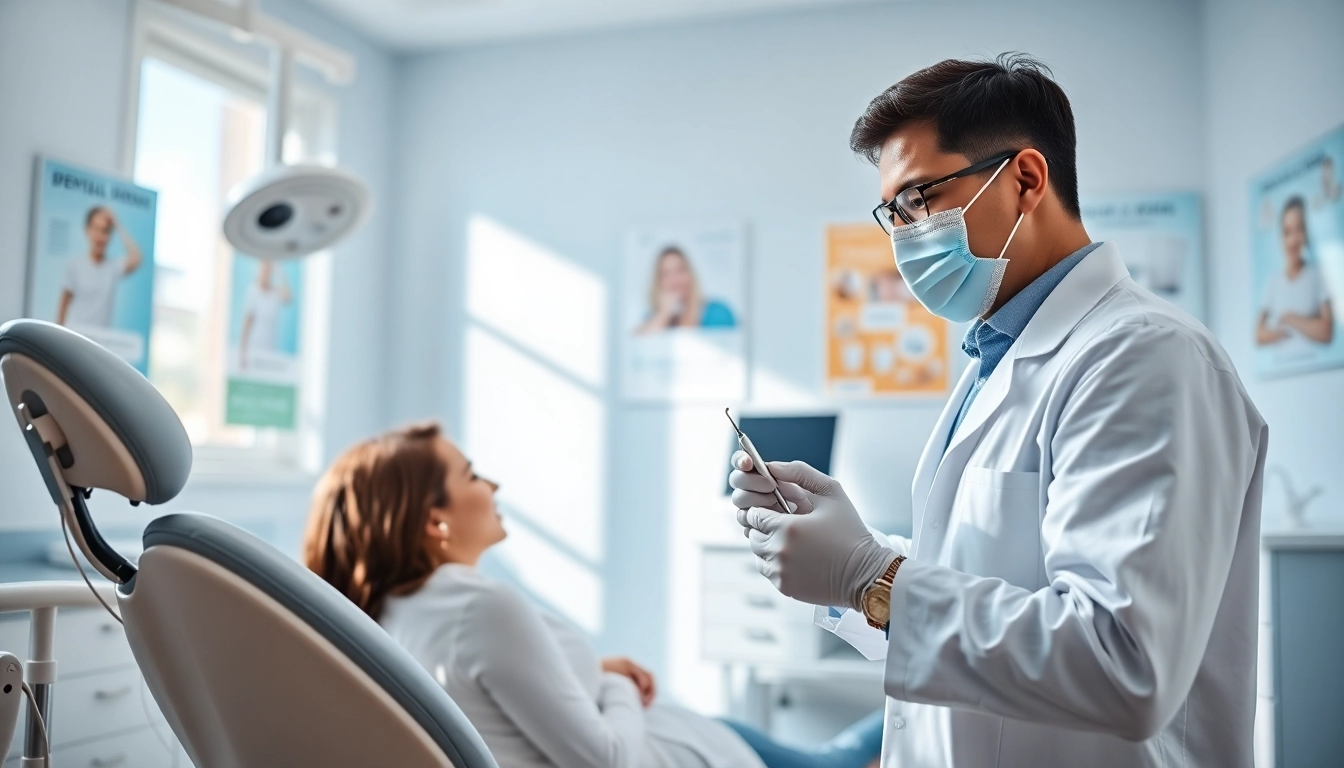Understanding the Importance of Regular Checkups
Regular checkups are an essential element of preventive healthcare. They serve not only to maintain your overall health but also to ensure that any potential issues are identified and addressed promptly. For dental health specifically, checkups are crucial in preventing serious problems that could lead to more extensive treatments down the line. By regularly visiting your dentist for checkups, you enable yourself to maintain optimal oral health while also enhancing your overall well-being. Regular appointments at a trusted dental practice can significantly improve outcomes, providing professional cleaning and screenings for various oral health issues—an experience that truly underscores the importance of checkups.
The Role of Checkups in Preventive Care
Preventive care, particularly in the context of dental health, encompasses a range of practices aimed at preventing disease and maintaining health. Regular checkups allow dental professionals to monitor your oral health over time, enabling early detection of problems such as cavities, gum disease, and oral cancer. By identifying these issues early, the risk of complex treatments or significant discomfort is drastically reduced.
Additionally, checkups serve to reinforce good dental hygiene practices among patients. During these visits, dental professionals can educate patients on effective brushing and flossing techniques, recommend appropriate dental products, and provide personalized oral care advice. This proactive approach fosters healthier habits, promoting long-term wellness.
Frequency Recommendations for Checkups
The standard recommendation is to have dental checkups every six months. This frequency helps ensure that any potential issues are caught early while also allowing for routine cleanings. However, individual needs may vary. For example, patients with a history of dental disease or who have braces may require more frequent visits. Your dentist will tailor visits based on your specific health status, risk factors, and overall dental hygiene.
Common Reasons for Dental Checkups
Dental checkups serve several purposes:
- Professional Cleaning: Removing plaque and tartar build-up that you cannot eliminate through regular brushing and flossing.
- Cavity Detection: Checking for cavities and other issues using visual exams and X-rays.
- Gum Health Assessment: Evaluating the health of your gums to prevent gum disease.
- Oral Cancer Screening: Identifying signs of oral cancer during routine examinations.
- Patient Education: Providing guidance on maintaining good oral hygiene and prevention strategies.
What to Expect During Your Checkup
Understanding what happens during your dental checkup can help alleviate anxiety and foster a more positive experience.
Initial Assessments and Screenings
When you arrive for your appointment, the first step typically involves a medical history review. This includes any medications you’re currently taking, allergies, and previous dental issues. Following this, the dental hygienist will conduct an initial assessment, which may include measuring gum pockets to assess gum health and taking X-rays if necessary.
Common Procedures Done During Checkups
After the assessments, the professional cleaning and examination begin. A dental hygienist will:
- Use specialized tools to scrape away plaque and tartar from both the surface of the teeth and beneath the gum line.
- Polish the teeth using a high-powered electric toothbrush and a gritty toothpaste that helps remove surface stains.
- Floss between your teeth to remove any debris that may have escaped the cleaning.
Following the cleaning, the dentist will conduct a thorough examination, checking for cavities, gum disease, and other oral health issues.
Post-Checkup Care and Recommendations
After the examination, your dentist will discuss the findings and suggest any necessary treatment options. If issues were detected, they could recommend further treatments such as fillings, periodontal care, or preventive measures like dental sealants. Additionally, lifestyle recommendations regarding diet, smoking cessation, or oral hygiene practices might be shared.
How Checkups Contribute to Long-Term Health
Regular dental checkups are vital not only for oral health but also for your overall health.
Link Between Dental and Overall Health
A substantial body of research indicates a strong link between oral health and overall physical health. Poor dental hygiene can lead to infections and chronic inflammatory conditions that may affect the heart, lungs, and other body systems. For instance, periodontal disease has been associated with heart disease, diabetes, and respiratory conditions. Therefore, keeping your mouth healthy through routine checkups can have positive ripple effects throughout your body.
Benefits of Routine Checkups for Children and Adults
Both children and adults benefit significantly from regular checkups.
- For Children: Regular visits help establish a foundation for oral health that will last into adulthood. Early orthodontic evaluations can also be crucial for identifying the need for corrective treatments.
- For Adults: Continued dental care can help maintain natural teeth, prevent tooth loss, and ensure prompt treatment of issues as they arise.
Moreover, regular visits help foster trust in patients toward their dental providers, making them more likely to seek care as needed.
Understanding Dental Insurance Coverage for Checkups
Dental insurance plans typically cover preventive care, including routine checkups, cleanings, and X-rays. Understanding your insurance policy is crucial to maximizing your benefits. Usually, plans will fully cover two cleanings and exams annually. If you are unsure about your coverage, contacting your insurance provider or consulting with your dentist’s office can clarify what services are included, reducing financial stress and encouraging consistent care.
Common Myths About Dental Checkups
Many misconceptions exist regarding dental checkups which can deter individuals from seeking necessary care.
Dispelling Misconceptions About Visit Frequency
A common myth is that if you brush and floss effectively, you don’t need regular checkups. While self-care is crucial for maintaining oral health, professional oversight is equally important. Dentists can identify issues that patients might overlook and provide tailored advice for optimal care.
Understanding Pain and Anxiety in Relation to Checkups
Dental anxiety is a widespread issue, but it should not prevent individuals from attending checkups. Dentists are trained to work with anxious patients, often incorporating techniques to ease discomfort. Open communication with your provider about fears can lead to better experiences.
The Truth About Cost and Accessibility
While dental care can seem expensive, most facilities work with patients to create manageable payment plans. Additionally, many high-quality community dental programs offer low-cost services or sliding scale fees based on income, ensuring access to necessary care for everyone.
Maximizing Your Checkup Experience
To gain the most from your dental checkup, being proactive and prepared can enhance your experience significantly.
Preparing for Your Dental Visit
Before your visit, consider making a list of any concerns or questions regarding your oral health. Ensure you bring any relevant information about your medical history and current medications. Being prepared can lead to a more productive dialogue with your dentist.
Questions to Ask Your Dentist
It’s important to engage with your dental care provider. Here are some questions you might consider asking:
- What specific tools do you use during a checkup, and how do they work to improve my oral health?
- How can I improve my dental hygiene at home?
- Are there any signs or symptoms I should be on the lookout for between visits?
Follow-Up Care and Monitoring
After a checkup, whether additional treatments are required or not, follow the dentist’s recommendations for ongoing care. Regular brushing, flossing, and possibly changing your dental products according to professional advice are critical steps in maintaining your health until your next visit.



